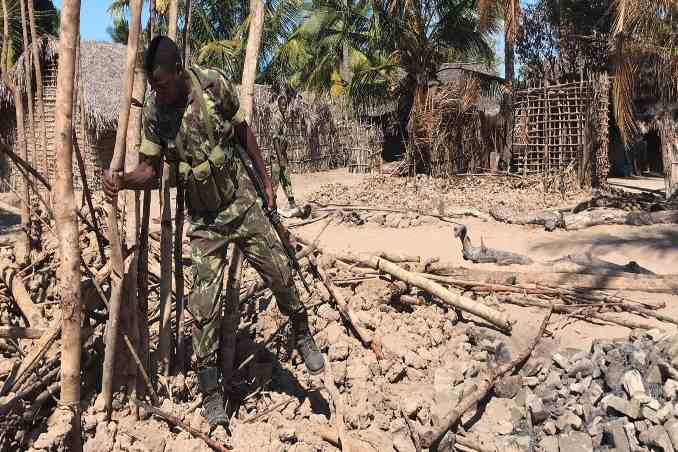Last updated on September 11th, 2021 at 07:58 am
According to recently collected data by the United States conflict tracker ACLED, has claimed over 2,800 with around half being civilians, has also internally displaced numerous people within the country. At least eight in ten displaced Mozambicans move in with family, friends or strangers. The statistic is according to humanitarian aid agencies.
On arrival in Pemba, the capital of Cabo Delgado province, the displaced people look for relatives or just stay on the beach, waiting for the government to move them to temporary shelters — a process that can take days.
“I saw some people still at the beach, in the open. I felt sorry for them,” said the soft-spoken Camacho, 35, explaining how she ended up with the crowd staying under her roof. A few meters away across the sandy yard of the house, one of her “guests”, Awa Njane, 19, sat on a small stool preparing dinner on an open coal fire.
Njane fled Quissanga in October after her father was captured by militants and beheaded. She does not know the whereabouts of her husband or mother. “Hunger is on the rise in Cabo Delgado,” Pierre Lucas, World Food Programmer (WFP) chief in Mozambique, told AFP.
“Displaced people are in urgent need of assistance now and for the next following months,” he said, appealing for $104 million (85.3 million euros) in funding to feed 950,000 people — the displaced as well as their host families — until the year end.
READMORE: Ethiopian elections 2021: Brief about Abiy Ahmed
Lucas added that “83%of (internally displaced people) are living with host families and the pressure is increasing on these communities.” Camacho has added three extra rooms to accommodate her guests, but that is still not enough. “People sleep everywhere, including here,” she said, pointing at the veranda of her house — measuring barely 40 square metres and built with metal sheets and bamboo plastered with mud.
The UN International Organization for Migration (IOM) is on the frontline, receiving heavily traumatized survivors. Its staff offer mental health care not only for the displaced but also for their hosts — some of whom even struggle to look after themselves. “Host communities have very limited resources. In spite of that, they are happy to share. There is a sense of humanity that unites them,” said IOM’s mental health expert in Pemba, Derya Ferhat.
That is an amazing thing about Mozambicans, they are very generous,” she added. “People are really happy to support each other.” Nevertheless, pressure from the mass displacements is felt across the board and the health care systems are also buckling under the strain. Adriano Nuvunga, head of Mozambique’s Centre for Democracy and Development, blames “governance failure” for the huge numbers of people living off host families.
“The state is failing, and that is fuelling the feeling of hopelessness among the displaced,” Nuvunga said, adding that despair makes people vulnerable to recruitment into the ranks of the extremists, who have made links with the Islamic State group.

